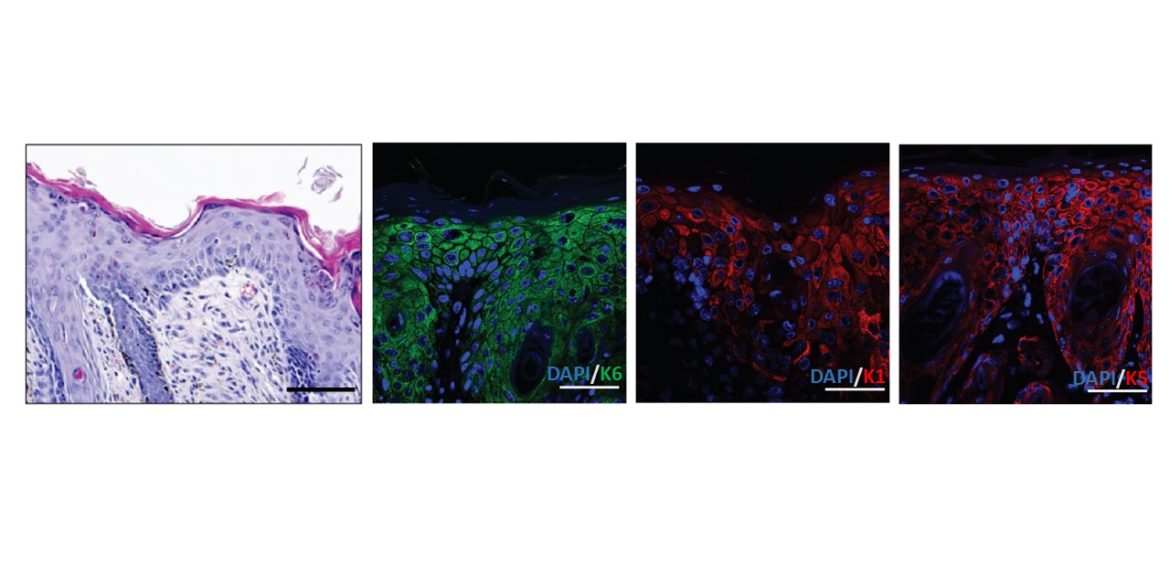HYPOTHESIS
ZBP1 signaling is involved in skin tumor growth modulation.

Background & Significance
The Z-DNA-sensing protein ZBP1/DAI/DLM1, not to be confused with β-actin zip code-binding protein (also abbreviated as ZBP1), has been identified as a gene upregulated in stromal tumor cells (such as macrophages), however, it can also be upregulated in cancer cells, suggesting a role in tumor growth modulation. Tumor-associated macrophages can have tumor-suppressing or tumor-promoting activities. Interestingly, ZBP1 was suggested to promote macrophage M2 polarization, which could be associated with tumor development and progression41. The exact role of ZBP1 in tumor initiation and progression has not been defined. ZBP1 has been reported to be activated by binding to Z-DNA, thereby inducing cell death, NF-κB and IRF-3 activation42. Recently, this idea has been challenged and it has been shown that ZBP1 can act as a sensor of viral-derived and endogenous RNA molecules43, 44. Preliminary data generated in our lab, making use of knockin mice expressing an unresponsive nucleic acid-sensing dead ZBP1 mutant (ZBP1 sensing-dead knockin mice), indicate that ZBP1 can act as a sensor of endogenous nuclear acids in contributing to skin inflammation. Given the interconnection between chronic inflammation and cancer, we will assess the contribution of ZBP1 to tumor formation making use of genetically engineered mouse models. Such studies can indicate whether ZBP1 expression and activity can be beneficial or detrimental during skin carcinogenesis and its expression may have prognostic value for cancer progression.
Objectives
We will analyze the skin tumor susceptibility of ZBP1 deficient and ZBP1 sensing-dead knockin mice compared to wild- type mice using the two stage DMBA/TPA skin carcinogenesis model. Tumors will be analysed for tumor progression (growth rate, transformation to SCC, cytokine expression, immune cell infiltration, etc);
Study the contribution of ZBP1 expression in macrophages, cancer associated fibroblasts or keratinocytes, making use of tissue-specific knock-out lines, in DMBA/TPA-induced skin carcinogenesis. Tumors will be analyzed for tumor progression (growth rate, transformation to SCC, cytokine expression, immune cell infiltration, etc);
Analyze the expression of human ZBP1 in skin and breast tumor tissues using IHC and study the association with clinical outcome.
Enrolment in Doctoral degree(s):
- Ghent University
